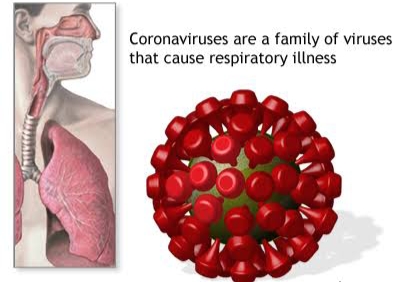
I wanted to know yet I felt that I’d already had enough of this disaster. When the cover of this book came across my computer scene, I wanted to read another “expert’s” opinion of this life changing event but yet, I felt I’d really had enough of Covid and what could this doctor really tell me that I hadn’t already heard? With over a year of restrictions, testing, quarantines, and now vaccinations, did I really want to read 300+ pages of more information and opinions? The synopsis had plenty of interesting topics that sparked my curiosity: what had led us into our current pandemic, how could we prepare ourselves for a future pandemic (because folks, there will be another one). Sanjay was also going to comment on whether Covid was going to be a part of our lives forever or whether it would finally die itself out. I was hoping that his insight and information would provide some interesting information or at least something different than what I have already heard.
I’ll be honest and say that, a few sections of this book were WAY over my head. I’m not a doctor or a nurse, nor do I have any medical field experience. I’m a mother and a Nana which gives me some medical experience but my badges of an accountant, substitute teacher, volunteer, and a devoted book reader don’t give me the background to handle some of the terms and procedures that Sanjay was mentioning in this book. I did my best trying to decipher these sections of the book which included DNA, RNA, and chemical reactions, but some of it was just tumbling around in my head. He talked about the origins of infectious diseases which I thought was interesting. Finding the origins of these illnesses and when they began is important as it can say a lot about the disease. Previously many infectious diseases began from domestic animals and I remembered that they were linking Covid to bats. The common cold originally began in a camel and pigs and birds are the sources of the many strains of the flu. Makes me wonder, if they can give us these diseases, do humans give them any diseases?
Sanjay talks about a Global Health Security Risk which I thought was interesting. This Security Risk was assembled by “the Nuclear Threat Initiative (NTI) and the John Hopkins Center for Health Security (JHU) and was developed with The Economist Intelligence Unit (EIU).” The purpose of this index was “these organizations believe that, over time, the GHS Index will spur measurable changes in national health security and improve international capability to address one of the world’s most omnipresent risks: infectious disease outbreaks that can lead to international epidemics and pandemics.” This index was created in Oct 2019, this was before the pandemic. How was the U.S. ranked out the of 195 countries? Number 1, they scored 83.5 out of 100, the best prepared county to handle a pandemic/epidemic. The United Kingdom received a 77.9 and New Zealand a 54. YET, and I say yet, we all know what happened in the U.S. The U.S., according to the graphs that I saw on the news, they didn’t look like they were the best prepared. Sanjay makes a point by saying that the United States has 4% of the world’s population but they had 22% of the world’s total infections of this disease by the end of 2020. That’s like taking “Ten (10) Airbus 320 Jetliners with 150 individuals on board and having them all fall from the sky, every day! We haven’t even considered the number of lives that were lost in 2021.
https://www.ghsindex.org/
“Had we taken action and carried out control measures, like physical distancing and masking up just one or two weeks earlier, a report created at Columbia University states that more than half of the deaths and illnesses could have been avoided.” Sanjay gives more details about this topic and like many, he has his data to back it up.
So, what’s the future hold? I thought what Sanjay said made sense and he used PROOF to organize his points. Sanjay believes that Covid is here to stay, just like many other professionals. Learning how to live together, each of us will need to adapt, change and respond to one another. Using PROOF, Sanjay makes some valuable points about risks, the internet, keeping vigil, and planning.
Overall, I thought it was a great book for me. I liked his mindset and the book didn’t feel overloaded with emotions and turmoil. I thought Sanjay was honest and he shared a variety of different topics in the book. There were some parts of the book that were difficult for me to read terminology, but I managed. 4.5 stars

 Log in with Facebook
Log in with Facebook 







